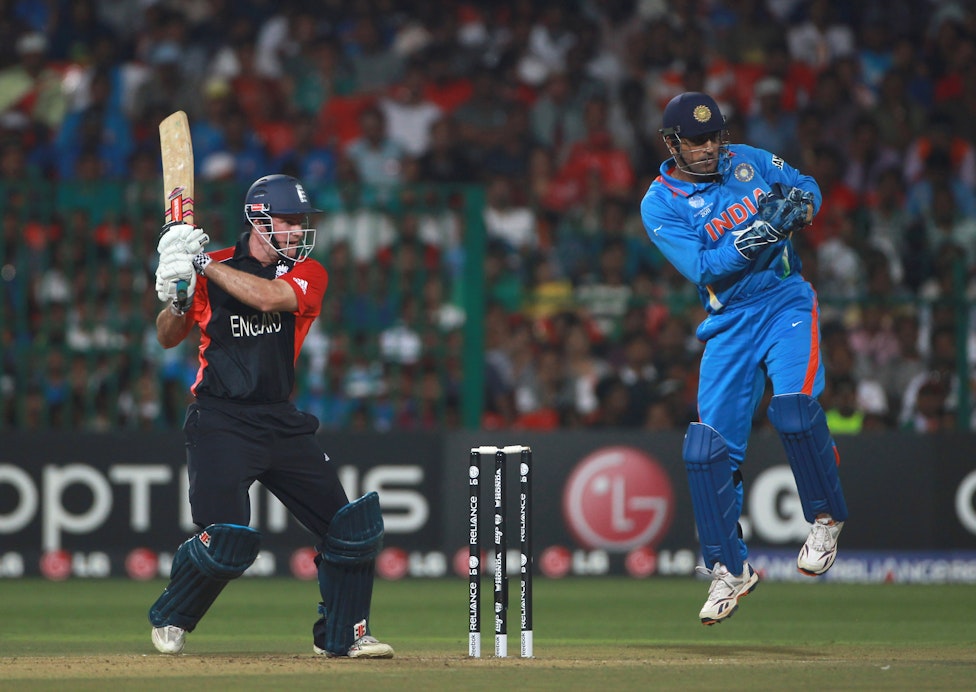 ON THIS DAY
ON THIS DAYItalian writer Italo Calvino described "classic" as a story that "never finished saying what it has to say". Indian cricket team's iconic tie with England in the 2011 ICC World Cup tells a similar tale. It had greatness written all over it, filling cricket fans' hearts with content but leaving much more to desire simultaneously.
Interestingly, what turned this World Cup league match into an epic clash was the unbelievable fight from the England skipper Andrew Strauss - a player whose batting limitations had propelled many to discard him as a white ball cricketer. Thankfully, there are no limitations to a man's will.
When the Indian cricket team's almost demigod-ish batting line-up returned to their dressing room after putting up a mammoth target of 338 runs in the first innings, the English captain had only one thing to rely upon - his indomitable will. But, one man's resolve is another man's madness, and Strauss knew straightaway that he had to do it himself.
M Chinnaswamy's flat track had little for the bowlers, which was evident from Sachin Tendulkar's aesthetic knock of 120 runs, laced with ten boundaries and five sixes. With Tendulkar, Yuvraj Singh, and Gautam Gambhir all getting half-centuries, everyone expected the visitors to put up a fight. However, chasing down 339 runs on foreign soil needed more than favourable conditions.
England had taken the initial steps judiciously, with Strauss and Kevin Pietersen starting strongly. However, what didn't go to plan for them was India's bowlers. Unlike Tim Bresnan - England's only bright spot with a fifer in the match - India's blend of pace and spin was wreaking havoc for England, with Zaheer Khan, Munaf Patel and Piyush Chawla taking seven wickets among them.
Though Ian Bell's 69-run knock in the middle order was encouraging for the English fans, Strauss was carrying their expectations single-handedly. If Tendulkar's knock had elegance, Strauss' reeked of invincibility.
Strauss scored only his sixth ODI hundred in the game while sharing an unbelievable 170-run third-wicket stand with Bell. The same Zaheer Khan and Munaf Patel, who were spitting venom at most English batters, looked helpless against the English skipper. When Strauss returned to the dugout scoring a mammoth 158 runs, which had 18 boundaries and a six - England required just 57 runs from 43 balls.
"Absolutely, it was my best one-day knock, no doubt about it," Strauss had said. "Given the importance of the game, the backdrop of playing India at home in a World Cup. It was certainly a knock that I was very proud of."
England still needed small but significant contributions from Michael Yardy, Bresnan and Graeme Swann, which would have all gone down the drains had tailender Ajmal Shahzad not hit an all-important six off Munaf Patel in the final over.
Legends say Gods often actively decided the victor in Greek mythologies whenever two evenly-matched warriors took centre stage. However, on February 27, 2011, the superpowers stood undecided at the spectacle, thereby forging a cricket classic.
Former Indian cricket team captain MS Dhoni, who would eventually win the 2011 ICC World Cup, would seemingly reiterate Calvino's words post-match, stating, “I think both sides will have mixed feelings. We were very close to winning and very close to losing, so I am both a little happy and a little sad."